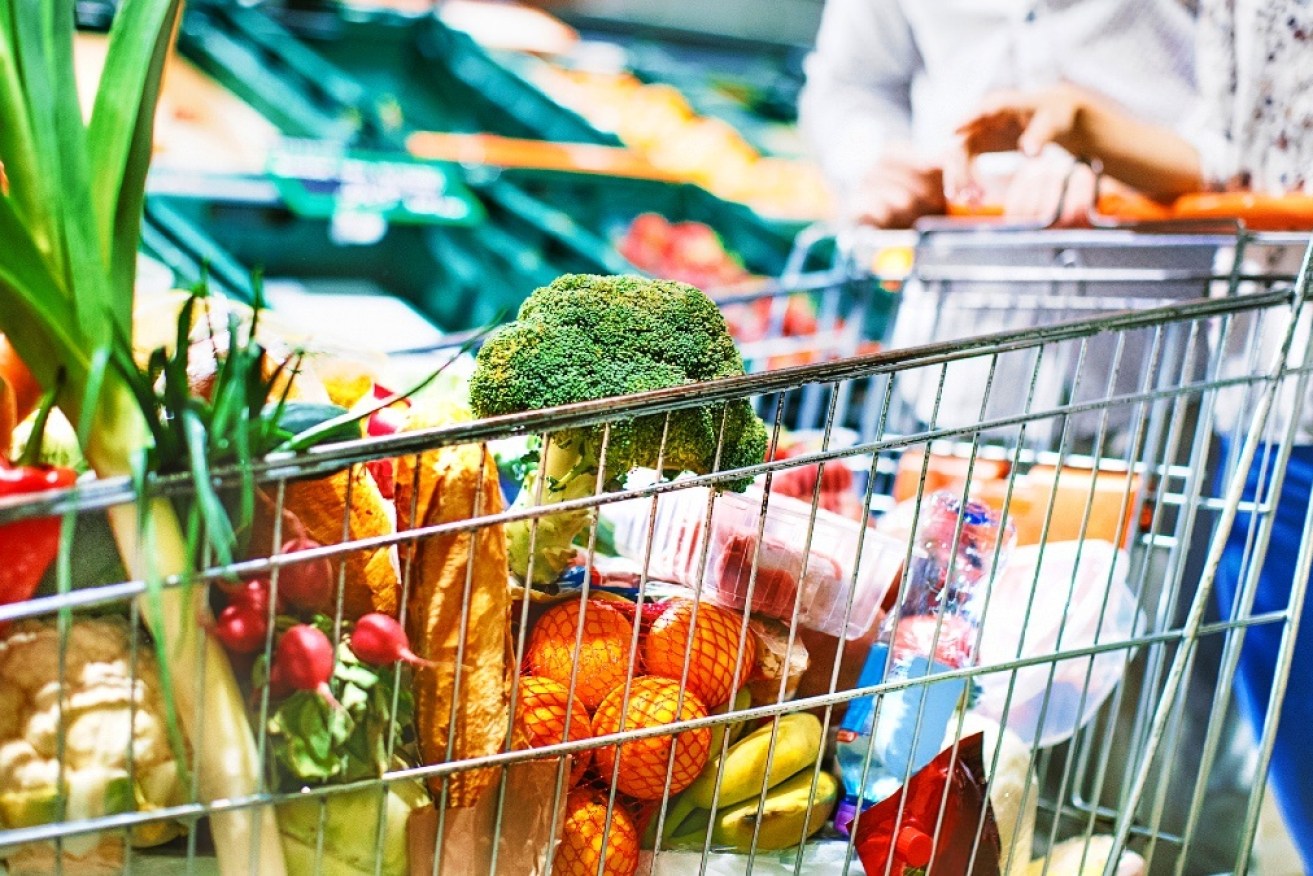‘Huge squeeze’: Tough Christmas ahead as grocery and energy inflation soars


Grocery prices are unlikely to substantially fall anytime soon. Photo: Getty
Household are facing a tough six months as the worst cost-of-living crisis in a generation goes from bad to worse, with soaring grocery and energy bills hitting households hard.
That was the picture drawn by official inflation figures on Wednesday, which revealed consumer prices rose 7.2 per cent annually in the September quarter, the fastest pace in more than three decades.
But what surprised economists was not headline inflation – ahead of an expected peak of 7.75 per cent by Christmas – but the massive run-up of essential costs like food and energy.
Grocery prices have skyrocketed over the past three months as the effects of widespread flooding in key growing regions earlier this year begins to flow through to supermarkets.
It saw prices for food and non-alcoholic beverages soar an astonishing 9 per cent – driven by a much larger 16 per cent spike in fruit and vegetable prices in annual terms.
And with the damage from ongoing floods in Victoria and New South Wales still being assessed, these figures are likely to get even worse heading into Christmas, as families prepare reunions.
“It’s not a pretty picture,” BIS Oxford senior economist Sean Langcake said. “This is a huge squeeze.”
Coles is already sounding the alarm, telling investors on Wednesday – mere hours before the latest inflation data dropped – that its food prices had risen 7.1 per cent in the quarter.
“Fresh inflation was 8.8 per cent and continued to be driven by bakery, reflecting higher wheat prices, and fresh produce, particularly in fruit such as berries and bananas,” Coles said.
“Raw material, commodity, shipping and fuel costs remained the key drivers of supplier input cost requests received in the first quarter impacting inflation in packaged [goods].”
Gas and household fuel bills shot up 10.9 per cent in the quarter, while electricity prices rose 3.2 per cent. It would have been 15.6 per cent if it weren’t for government subsidies.
These programs are time-limited though, so before long Australians will feel the full brunt.
Floods drive inflation uncertainty
It all underscores a massive challenge for the Reserve Bank, which is banking on inflation easing early next year after a series of steep rate hikes dampen demand among shoppers.
But if the impact of widespread flooding around the La Nina weather pattern persists into 2023, as the latest official forecasts indicate, then food prices could keep rising even higher.
And that could, in turn, deliver a higher inflation result and bigger rises in interest rates, further squeezing households through higher mortgage bills.
The cash rate target has already risen from 0.1 per cent to 2.6 per cent in the past six months, and spurred by the latest inflation figures ANZ economists upgraded their forecasts on Wednesday to predict rates will now peak at 3.85 per cent by May next year.
Such an increase would represent more than $1000 extra on a typical $500,000 25-year monthly mortgage repayment within a year.
The good news is that economists are still optimistic that headline inflation will ease, namely because petrol prices are now falling from earlier highs and construction costs aren’t increasing as fast as they were.
The issue here, though, is that what matters to households isn’t where the inflation rate lands, but how the soaring cost of essentials is eating into their budgets ahead of Christmas.
And because these price increases are being caused by supply disruptions – both global and local – higher interest rates are unlikely to abate this increasingly acute cost of living crisis.








